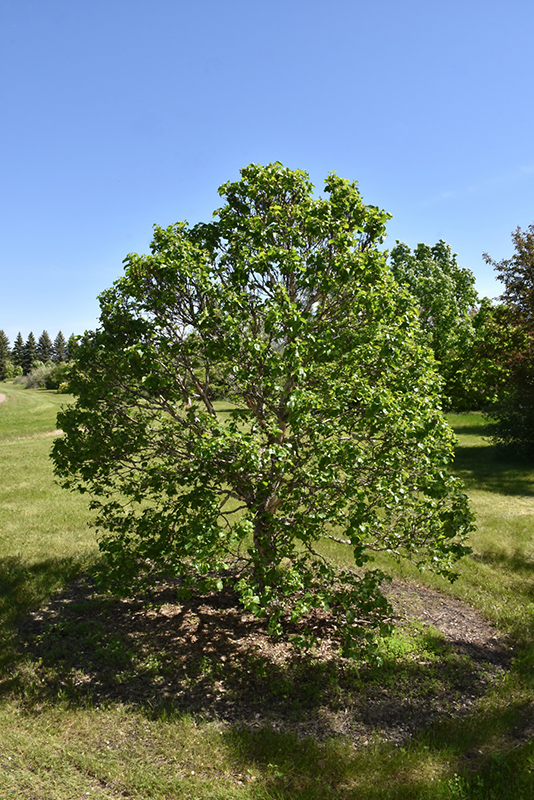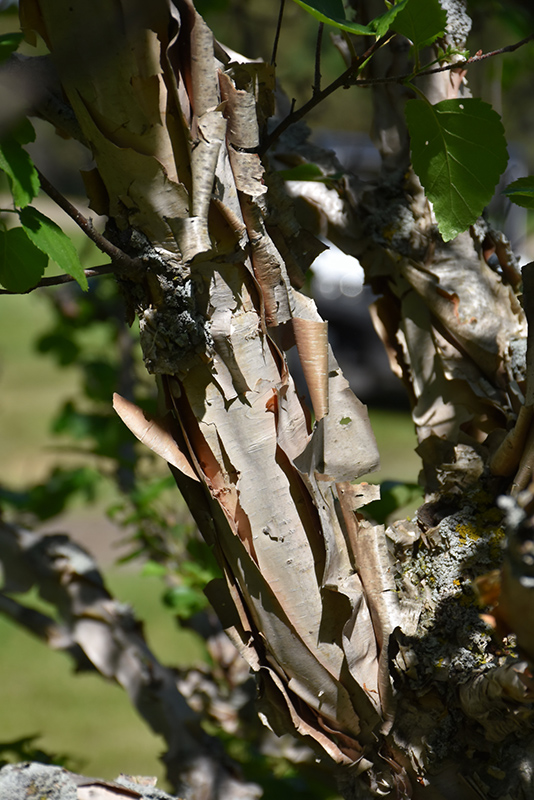Cinnamon Curls® Dwarf Korean Birch
Betula costata 'CinnDak'
Height: 10 feet
Spread: 10 feet
Sunlight:
![]()
![]()
Hardiness Zone: 4a
Other Names: Korean Birch
Description:
A distinctive dwarf birch that features captivating white peeling bark with cinnamon colored undersides; compact with a rounded form, and single trunked; a very attractive tree for smaller landscapes
Ornamental Features
Cinnamon Curls® Dwarf Korean Birch has light green deciduous foliage on a tree with a round habit of growth. The pointy leaves turn outstanding shades of yellow and in the fall. The peeling white bark is extremely showy and adds significant winter interest.
Landscape Attributes
Cinnamon Curls® Dwarf Korean Birch is a deciduous tree with a more or less rounded form. Its relatively fine texture sets it apart from other landscape plants with less refined foliage.
This is a relatively low maintenance tree, and should only be pruned in summer after the leaves have fully developed, as it may 'bleed' sap if pruned in late winter or early spring. It has no significant negative characteristics.
Cinnamon Curls® Dwarf Korean Birch is recommended for the following landscape applications;
- Accent
Planting & Growing
Cinnamon Curls® Dwarf Korean Birch will grow to be about 10 feet tall at maturity, with a spread of 10 feet. It has a low canopy with a typical clearance of 2 feet from the ground, and is suitable for planting under power lines. It grows at a slow rate, and under ideal conditions can be expected to live for 60 years or more.
This tree does best in full sun to partial shade. It prefers to grow in average to moist conditions, and shouldn't be allowed to dry out. It is not particular as to soil type or pH. It is somewhat tolerant of urban pollution. This is a selected variety of a species not originally from North America.




